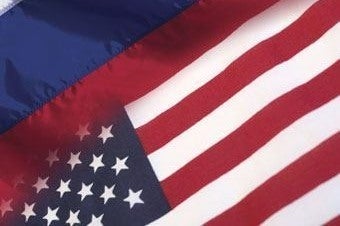
US poultry producers have played down the impact that a potential Russian ban on chicken imports from the country would have on the sector.

Discover B2B Marketing That Performs
Combine business intelligence and editorial excellence to reach engaged professionals across 36 leading media platforms.
The move comes in response to a fresh wave of economic sanctions imposed by the US and EU, who accuse Russia of supplying Ukrainian secessionists with the antiaircraft technology that was responsible for shooting down a commercial aircraft, Malaysian Airlines flight 17.
According to the US Poultry and Egg Export Council, part of the National Chicken Council, the industry body has learned that US poultry is one of the commodities to be included in Russian import restrictions.
Moscow’s decree states that restrictions would be effective for one year and requires authorities to establish market-control measures to increase domestic supply in order to avoid shortages and price increases.
The NCC said that the importance of Russia as an export destination was already declining as Russian production stepped up. The country is the second largest export market for US chicken, generating sales valued at around US$303m in 2013. However, Russia only represents 7% of US poultry export volumes compared to as much as 40% of export volumes in the mid-1990s, the NCC said.

US Tariffs are shifting - will you react or anticipate?
Don’t let policy changes catch you off guard. Stay proactive with real-time data and expert analysis.
By GlobalData“We do not expect that a Russian ban on US poultry imports will have a great impact on our industry. The biggest impact, we believe, will be on Russian citizens who will be burdened by higher prices for all food products, especially meat and poultry. The price of poultry in Russia is already rising and has recently been increasing at a rate of 2% to 3% per week,” a spokesperson for the US body told just-food.
“Our industry believes that free and fair trade – particularly with food – should never be used as a political bargaining chip. We look forward to working with the US government to resolve this issue and resume normal trade relations with Russia as soon as possible,” the spokesperson added.
Earlier today, the Russian veterinary service, the Rosselkhoznadzor, suggested that microorganisms have been detected on poultry shipments from Tyson Foods and Sanderson Farms.
Both companies stressed the high levels of food safety that they adhere to and Sanderson CFO Mike Cockrell told just-food that he believes the Rosselkhoznadzor’s findings are politically motivated.
Cockrell also played down the impact that any ban would have. “The fact of the matter is the market is not as important as it used to be… In terms of our company, shipments to Russia represent just 1.5% of total sales. It is not a big deal for us and we will find alternative markets for that product. This is not to say we wouldn’t like to continue to serve Russia.”





